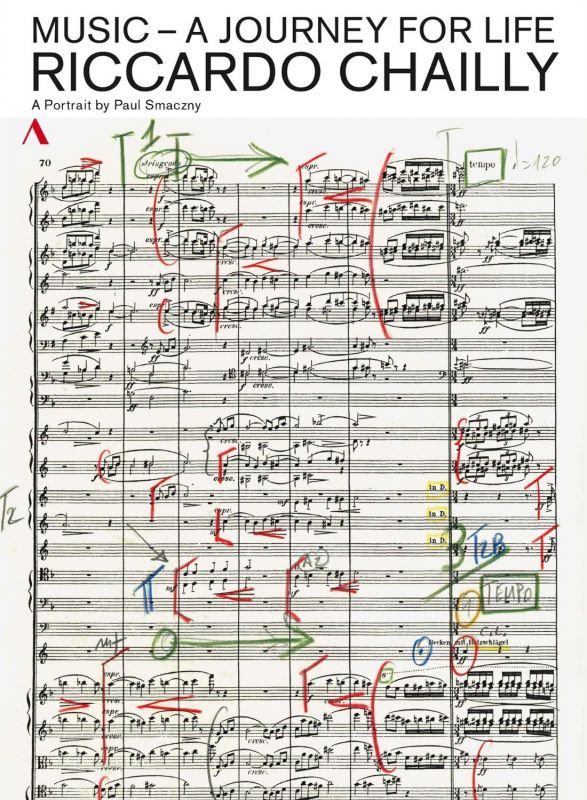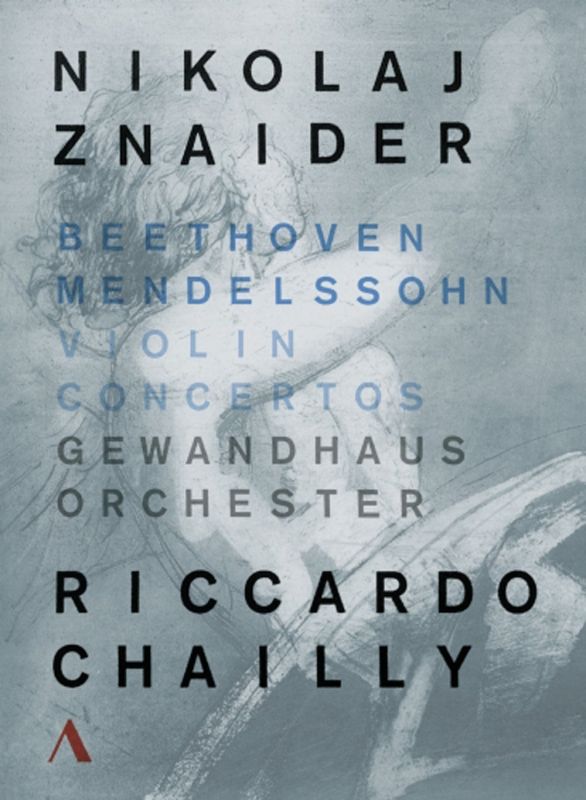Riccardo Chailly: Music - A Journey for Life. BEETHOVEN. MENDELSSOHN Violin Concertos
View record and artist detailsRecord and Artist Details
Composer or Director: Edvard Grieg
Genre:
Orchestral
Label: Accentus
Magazine Review Date: 04/2016
Media Format: Digital Versatile Disc
Media Runtime: 54
Mastering:
DDD
Catalogue Number: ACC20254

Tracks:
| Composition | Artist Credit |
|---|---|
| Concerto for Piano and Orchestra |
Edvard Grieg, Composer
Edvard Grieg, Composer Lars Vogt, Piano Leipzig Gewandhaus Orchestra Riccardo Chailly, Conductor |
Composer or Director: Felix Mendelssohn, Ludwig van Beethoven, Johann Sebastian Bach
Genre:
Orchestral
Label: Accentus
Magazine Review Date: 04/2016
Media Format: Digital Versatile Disc
Media Runtime: 85
Mastering:
DDD
Catalogue Number: ACC20345

Tracks:
| Composition | Artist Credit |
|---|---|
| Concerto for Violin and Orchestra |
Ludwig van Beethoven, Composer
Leipzig Gewandhaus Orchestra Ludwig van Beethoven, Composer Nikolaj Znaider, Violin Riccardo Chailly, Conductor |
| (3) Sonatas and 3 Partitas, Movement: Partita No. 1 in B minor, BWV1002 |
Johann Sebastian Bach, Composer
Johann Sebastian Bach, Composer Nikolaj Znaider, Violin |
| (3) Sonatas and 3 Partitas, Movement: Partita No. 2 in D minor, BWV1004 |
Johann Sebastian Bach, Composer
Johann Sebastian Bach, Composer Nikolaj Znaider, Violin |
Author: Hugo Shirley
We cut to Mahler again at the close, with the final minutes of the Sixth Symphony, a carefully assembled piece of film-making that takes us from Chailly quietly studying and annotating the score, through moments of pre-concert ritual, to his arrival on stage. Then, as the credits arrive, we cut to disarming footage of the maestro negotiating a winding Alpine road on a moped to the strains of La traviata.
Smaczny’s tone throughout seems to match his subject, who comes across as considered in conversation, patient in preparation and calmly authoritative on the podium; there’s no mistaking the steely determination beneath the urbane surface, even if we don’t ever see it explicitly.
A brief account of his early years under the shadow of his composer father leads to footage of his own family life and mentions of important mentors, Abbado and Karajan among them (it was the latter who engineered his first concert with the Gewandhausorchester in 1986). Mahler in Leipzig, meanwhile, is contrasted with footage of Puccini in Valencia, where Chailly conducts La bohème and explains a perhaps unexpected parallel between the two composers as he sees them: both, he tells us, were in search of a special orchestral refinement.
At just 50 minutes, this is inevitably more of a sketch than a portrait, and it was produced before Chailly announced his move, although the slightly reverent booklet-note does discuss it. As a snapshot, though, it makes for fascinating, often charming viewing, and it gives a valuable insight into both Chailly’s approach to what he conducts – he loves rehearsing, but always keeps something in reserve for performance – and what makes a successful relationship between orchestra and conductor.
As a bonus we have a performance of the Grieg Piano Concerto with Lars Vogt, a satisfyingly broad and rich account, featuring some gorgeous solo work from the orchestra, the principal horn in particular. Much the same virtues apply to the companion release of two more concertos, here featuring Nikolaj Znaider. A decade after the violinist released the same coupling of Beethoven and Mendelssohn on CD (RCA, 12/05), his interpretations (albeit filmed respectively two and four years ago) feel remarkably similar.
Znaider’s Beethoven is almost impossibly sweet-toned and controlled. A premium is placed on poise and serenity, which certainly keeps the first and second movements hovering around a sublime plane. Whenever there’s a hushed phrase, Znaider seems capable of repeating it in an even more whispered tone. The passagework is impeccably clean and controlled. Chailly keeps firm control over the structure, but some might miss a touch of steel in Znaider’s approach, even if his accounts of the Kreisler cadenzas are a marvel of technique and musicality – the imitative double-stopped passage in that for the first movement is dispatched with astonishing cool.
The Mendelssohn is wonderfully fleet and fluid, and the concertos are followed by exquisite – if somewhat inevitable – solo Bach encores. Each serves as a further reminder of Leipzig’s musical heritage, which Chailly’s sojourn as the 19th Gewandhauskapellmeister has done a great deal to bring back into the spotlight.
Discover the world's largest classical music catalogue with Presto Music.

Gramophone Digital Club
- Digital Edition
- Digital Archive
- Reviews Database
- Full website access
From £8.75 / month
Subscribe
Gramophone Full Club
- Print Edition
- Digital Edition
- Digital Archive
- Reviews Database
- Full website access
From £11.00 / month
Subscribe
If you are a library, university or other organisation that would be interested in an institutional subscription to Gramophone please click here for further information.




